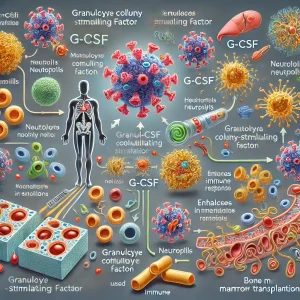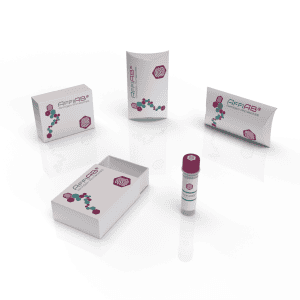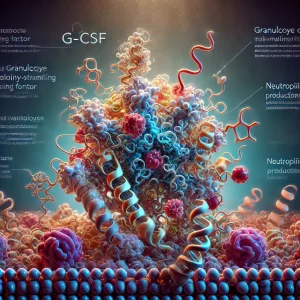Introduction
Human Granulocyte Colony-Stimulating Factor (G-CSF) is a cytokine essential for hematopoiesis, promoting the survival, proliferation, and differentiation of neutrophil precursors. The G-CSF antibody: LE/AF (Low Endotoxin/Azide-Free) is widely used in biomedical research to investigate immune responses, hematopoietic disorders, and potential therapeutic applications.
This article explores the significance of G-CSF, the applications of anti-G-CSF antibodies, and their role in medical advancements, with extensive references to educational (.edu) and government (.gov) resources to ensure accuracy and reliability.
What is G-CSF?
G-CSF is a glycoprotein that stimulates the production of granulocytes, primarily neutrophils, in the bone marrow. It plays a vital role in the immune system by enhancing the body’s defense against infections. G-CSF is naturally produced by endothelial cells, macrophages, and fibroblasts (National Library of Medicine) (NCBI Gene Database).
Applications of Human G-CSF Antibody: LE/AF
Anti-G-CSF antibodies, including LE/AF formulations, are widely used in research and clinical applications:
- Western Blotting (WB) – Detecting and quantifying G-CSF expression in biological samples.
- ELISA (Enzyme-Linked Immunosorbent Assay) – Measuring G-CSF levels in serum and plasma.
- Flow Cytometry (FC) – Analyzing G-CSF expression in various cell populations.
- Immunoprecipitation (IP) – Isolating G-CSF and its associated proteins.
- Neutralization Studies – Investigating the impact of G-CSF blockade in immune responses.
For validated antibody sources, refer to the NIH Antibody Registry and the Protein Atlas.
G-CSF in Immunology and Hematopoietic Disorders
G-CSF plays a crucial role in hematopoiesis and immune regulation. It is a key factor in neutrophil mobilization, making it an essential therapeutic target in conditions such as neutropenia and bone marrow transplantation (National Institute of Allergy and Infectious Diseases) (PubMed).
In oncology, G-CSF is used to reduce chemotherapy-induced neutropenia, thereby lowering the risk of infections in cancer patients (National Cancer Institute) (FDA Drug Database).
G-CSF and Autoimmune Diseases
Emerging research suggests that G-CSF contributes to the pathogenesis of certain autoimmune diseases, including rheumatoid arthritis and systemic lupus erythematosus (SLE). Blocking G-CSF with specific antibodies has shown promise in mitigating inflammatory responses in experimental models (Centers for Disease Control and Prevention) (NIH Autoimmune Research).
G-CSF in Stem Cell Mobilization
G-CSF is a standard agent for mobilizing hematopoietic stem cells (HSCs) in bone marrow transplantation. It enhances stem cell release into the bloodstream, improving the efficiency of peripheral blood stem cell (PBSC) collection for transplantation (National Marrow Donor Program) (ClinicalTrials.gov).
Therapeutic Potential of Anti-G-CSF Antibodies
Anti-G-CSF antibodies, including LE/AF formulations, have potential applications in cancer immunotherapy, chronic inflammation, and regenerative medicine. Future research aims to:
- Investigate the role of G-CSF in tumor progression and metastasis.
- Develop novel therapies targeting G-CSF for autoimmune diseases.
- Optimize the use of anti-G-CSF antibodies in stem cell transplantation.
For ongoing studies, refer to NIH Research Portfolio and ClinicalTrials.gov.
Conclusion
Human G-CSF and its associated antibodies, such as LE/AF formulations, are invaluable in both research and clinical settings. Their applications in immunology, oncology, and regenerative medicine underscore their importance in advancing healthcare.
For more in-depth information, consult resources such as the National Institutes of Health, PubMed, and the FDA.


